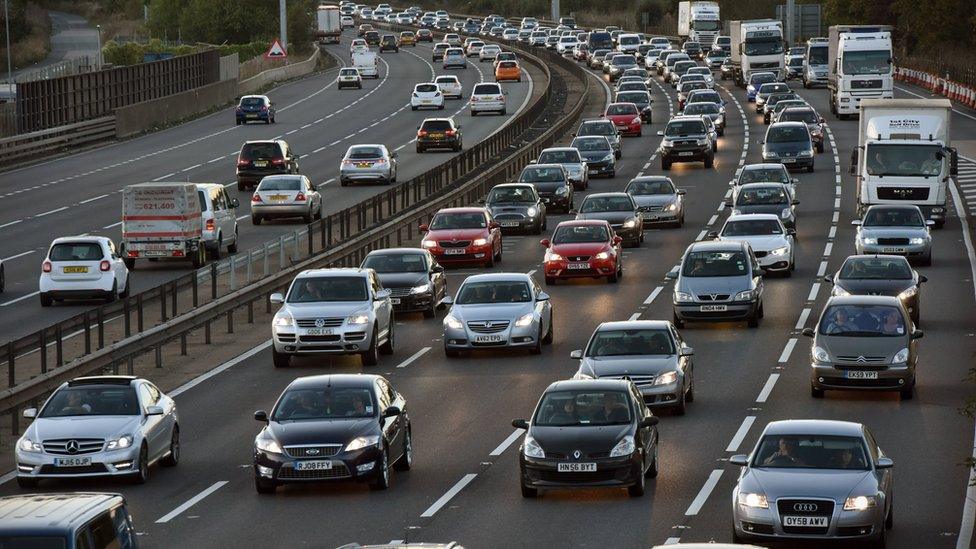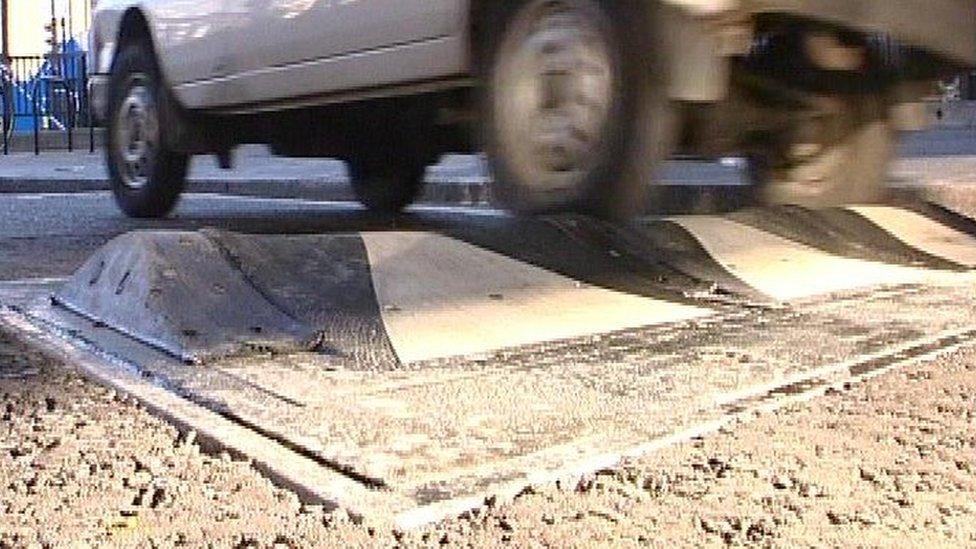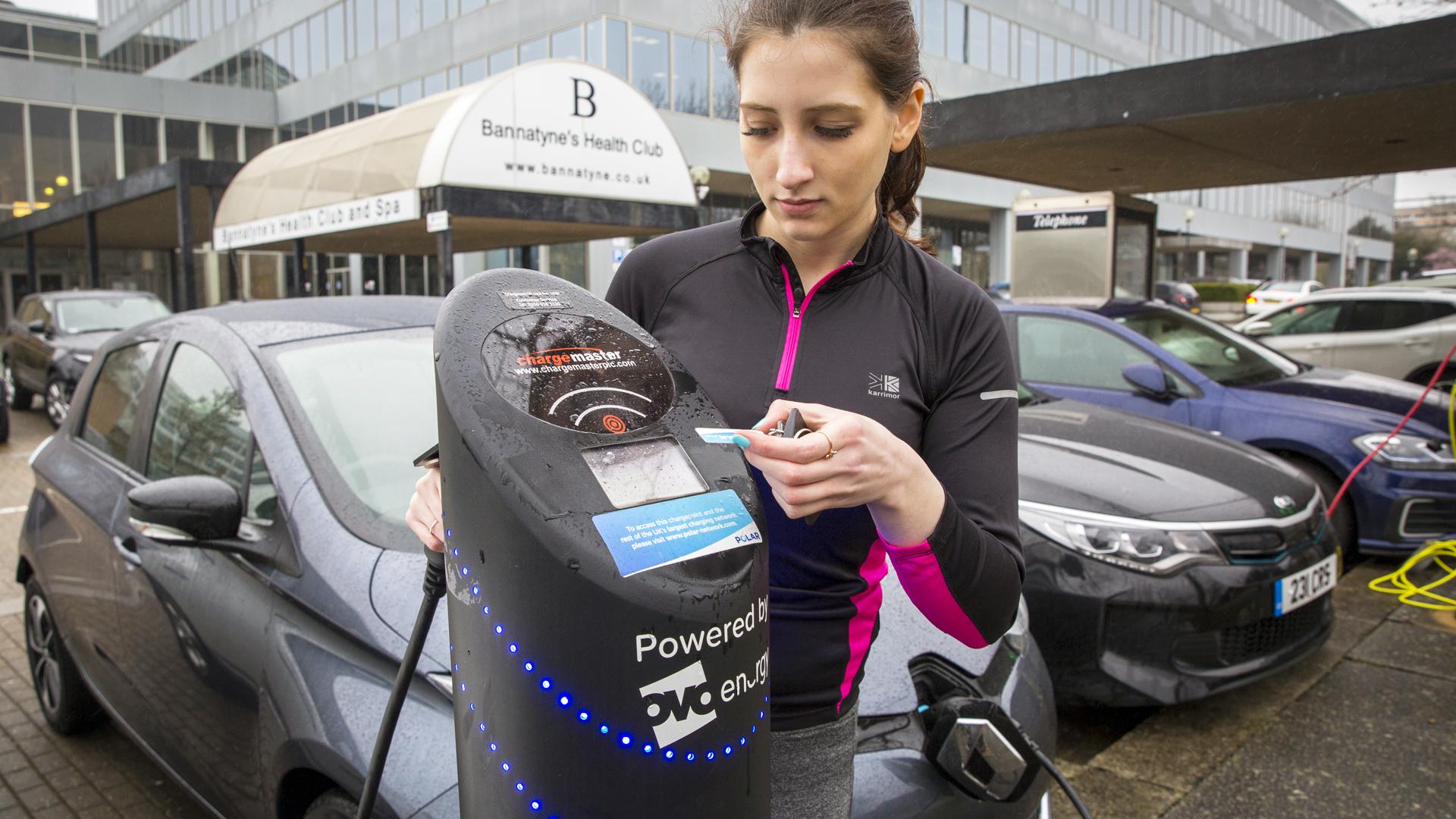Speed hump cuts 'daft', safety groups say
- Published
- comments

Seven road safety organisations have written to Environment Secretary Michael Gove about the plans
Ripping up speed humps to combat air pollution is "daft and irresponsible", road safety campaigners have said.
They are writing to ministers to warn that removing speed bumps will actually increase danger to children.
The government said it would fund councils in England to tear out humps because they elevated pollution as drivers surged between them.
Campaigners say the risk of accidents from speeding drivers almost certainly outweighs the long-term pollution risk.
A government spokeswoman promised that road safety wouldn't be compromised by any changes.
Safety organisations think the government's policy is motivated by the desire to appear pro-motorist at a time when drivers are aggrieved by possible restrictions on diesel cars.
Living Streets, which campaigns for children to walk safely to school, says if councils remove road humps without installing other measures such as chicanes or speed cameras, it will deter children from walking and cycling.
Instead, the group say, they will be taken to school in cars, which in turn will increase pollution while reducing exercise for children.
Its spokeswoman Rachel Maycock, who has a three-year-old daughter, told BBC News: "This idea is completely daft and irresponsible.
"Of course we all worry about the air our children breathe - but we also worry about reckless drivers going far too fast."
'Smoother driving'
The group has written to protest to Environment Secretary Michael Gove, along with the Campaign for Better Transport and the cycle organisation Cycling UK.
The campaigners say the government has misinterpreted guidance from the National Institute for Health and Care Excellence.
The guidance says that "where physical speed reduction measures are used to reduce road danger and injuries, consider using them to encourage drivers to maintain a reduced, steady pace along the whole stretch of road, rather than road humps that may increase acceleration and braking-related emissions".

Removing speed bumps will make it less likely children will walk to school, campaigners say
A spokeswoman for NICE told BBC News: "We don't say anything about ripping up road humps and getting rid of them - we just want to promote smoother driving.
"Whenever we make a recommendation about considering any measures other than speed humps, the media reports it as us recommending getting rid of speed humps - which we are not."
She said if councils were considering measures to slow traffic, average speed cameras might be more effective in some cases than humps.
Seven safety groups contacted by BBC News all said the humps policy was a distraction from the real issue in the environment department's nitrogen dioxide (NO2) reduction strategy.
They complained that the government had ignored advice from its own technical experts that the fastest way to lower pollution was by charging drivers of dirty vehicles to enter cities.
'Expert advice'
Roger Geffen, from Cycling UK, said: "While drawing up plans to tackle lethal air pollution, ministers received evidence that road user charging would be the most effective way.
"However, they said they'd rather councils removed speed humps instead.
"Far from reducing the annual death toll due to pollution, that would merely increase the numbers of people killed by speeding instead.
"Do we really need yet another court case before ministers heed the advice of their experts?"

NICE said its guidance was being misinterpreted
Dr Adrian Davis, visiting professor of health and transport at the University of the West of England, told BBC News: "The fact is, numerous studies had shown that unless drivers are forced to slow down by physical obstacles like road humps they will continue to drive too fast in residential areas.
"Scrapping humps without replacing them with some other form of physical measures would be both ridiculous and dangerous."
But Hugh Bladon, from the Alliance of British Drivers, welcomed the decision to fund the removal of humps, saying that they would inevitably increase pollution and reduce fuel efficiency because many drivers would accelerate away from them.
"It needs better education for drivers to drive smoothly and safely, rather than road humps," he told BBC News. "I admit I don't know how you would achieve that."
A government spokeswoman promised that road safety wouldn't be compromised by any changes and said councils were being asked to tackle pollution "in a way that meets the needs of their communities".
"Reducing roadside pollution is a priority for this government - which is why we have committed £3bn to help towns and cities take action against harmful emissions caused by dirty diesels," she added.
"Local authorities have access to a wide range of options as they develop plans to address roadside pollution in a way that meets the needs of their communities - both pedestrians and road users."
Follow Roger on Twitter, external
- Published26 July 2017

- Published1 December 2016

- Published4 February 2020
